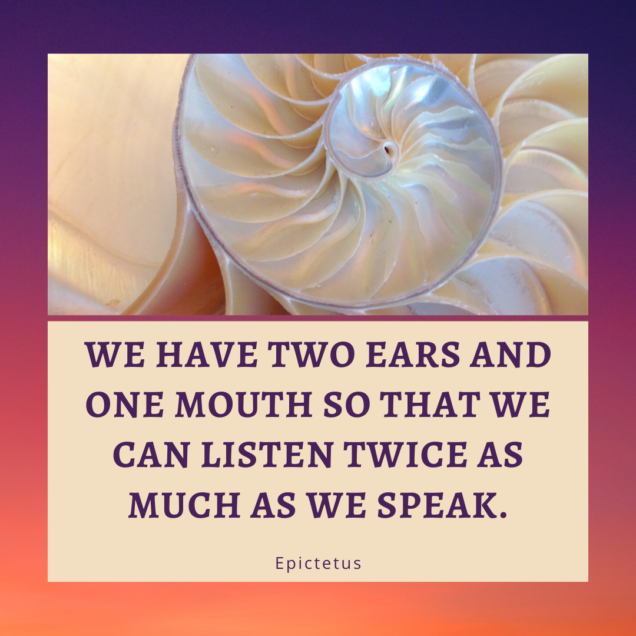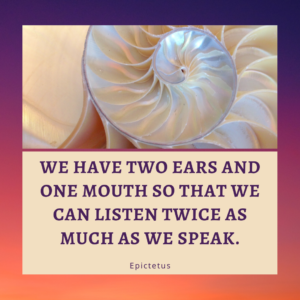How would you rate your listening skills? When you think you are listening or when you are supposed to be listening, how focused are you? At the end, how well have you connected with the other person or absorbed what you needed to hear?
Listening is a key part of the communication process. Yet, our listening skills are not always up to snuff. Distractions abound. Alerts ding on our phones and notices pop up on our screens. If you’re working from home with kids, your “co-workers” could be squealing about getting a snack during the middle of your Webex.
In a 2015 Accenture study, almost two-thirds of global professionals surveyed said listening in the digital workplace had become much more difficult.
“While 66 percent of respondents agree that multitasking enables them to accomplish more at work, more than a third (36 percent) say the many distractions prevent them from doing their best, resulting in a loss of focus, lower-quality work and diminished team relationships.
It’s not just distractions either. Sometimes we’ve gotten a little lax in our listening skills. We talk too much or interrupt. We might not offer our full attention. We’re more concerned with what we’re going to say next than really hearing the other person. We don’t ask questions to learn more.
Instead of lax listening, now is a great time to get back on track with these four tips.
- Be purposeful. Set up a time and environment that will allow you to pay attention to the other person. Make sure you have enough time, so the other person doesn’t feel rushed.
- Connect. Be present in the moment. Make eye contact and be interested. Become aware of their body language and how these non-verbal cues could help you understand.
- Keep an open mind. Be empathetic. Try to put yourself in their shoes to see where they’re coming from. Use calming breaths to self-regulate. Choose to be curious about the situation.
- Speak little, but well. Use verbal cues, such as “I see” and “uh-huh” to show you are staying tuned in. Ask clarifying and open-ended questions to learn more, for example, “How do you see us moving this forward?” At the end, recap the main points to let them know you heard and will remember.
Improving your listening skills is very beneficial. You will build trust and become someone that people want to approach. By communicating well in the first place, you will avoid mistakes and misunderstandings. This will save you time and money by allowing you to solve problems more efficiently. Listening well will help you learn and become more competent, while also giving you a broader view. We hope you use these four tips so you can begin seeing the benefits of better listening skills right away.



